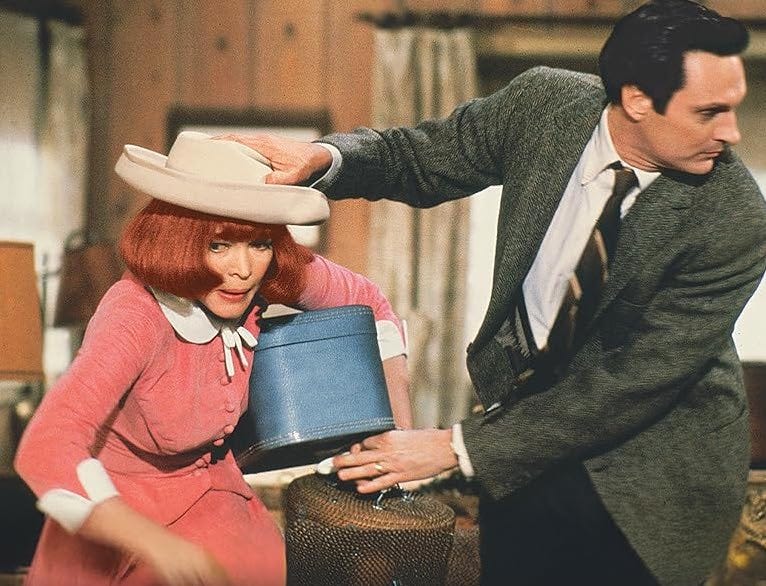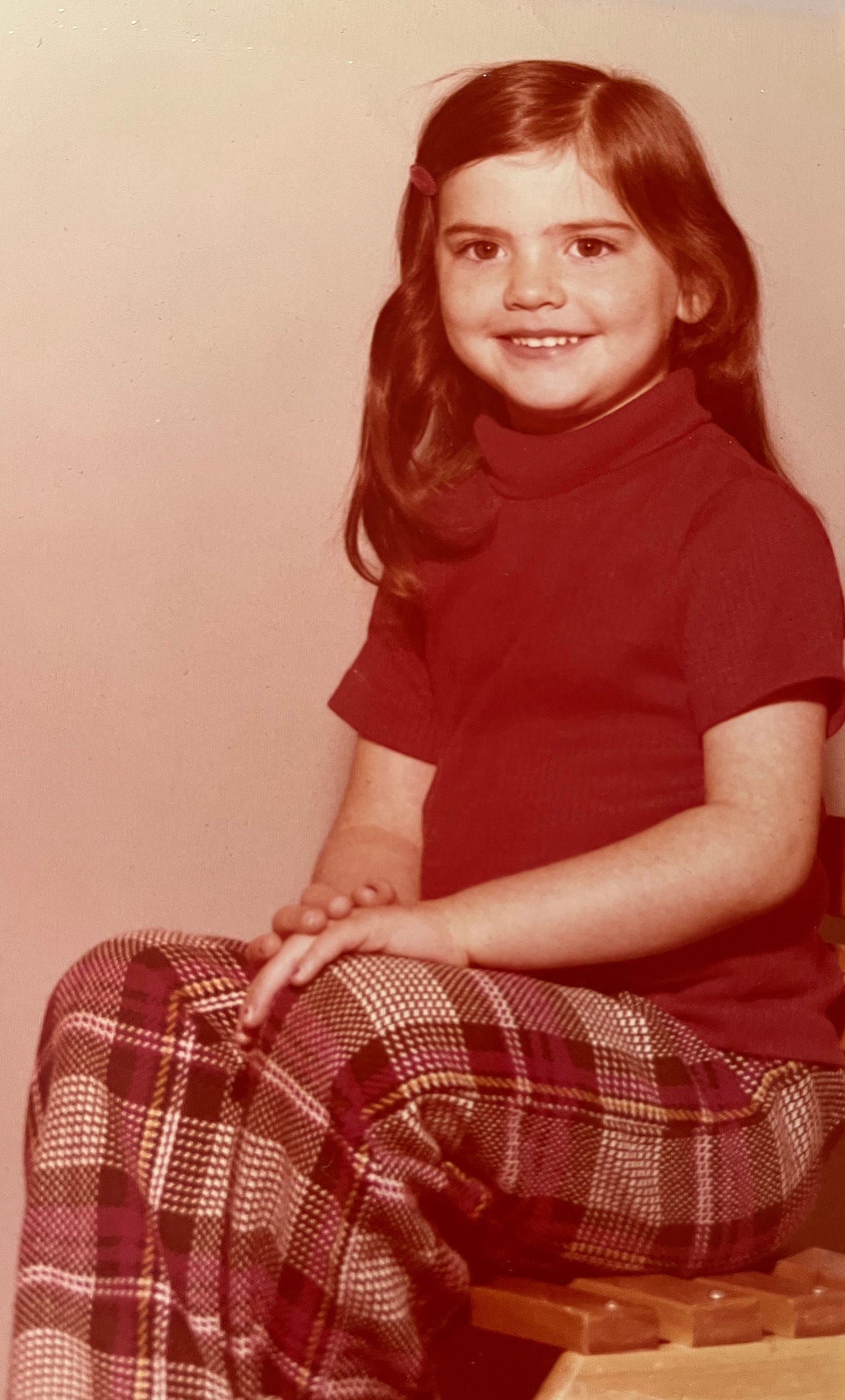Same Time, Next Year
A short post about a movie I love
I tracked down the movie Same Time, Next Year and watched it for the first time since I was a kid. It’s a movie I know by heart from having watched it in constant rotation over a three-year stretch when I lived in Spain as it was one of a handful of movies we had on VHS — a weird assortment, some completely age inappropriate, running the gamut from Chitty Chitty Bang Bang, Midnight Express, The Wizard of Oz, Magnum Force, Silver Streak, Stir Crazy, Stroker Ace, The Jazz Singer, and the movie I’ve brought you here to discuss today, Same Time, Next Year, starring Ellen Burstyn and Alan Alda — an adulterous couple who meet at a picturesque seaside inn the same weekend every year for decades.
My elementary school teacher was unimpressed that I’d seen this movie — a story of infidelity and sex and world events that shape an adulterous couple’s lives, but an adult’s disapproval has never stopped me, a precocious child, who took it all in and shared my opinions whether the grown ups cared to hear them or not, like the time I piped up at the dinner table with my thoughts on Jimmy Carter’s handling of the Iran hostage crisis and no one took me seriously because I was seven years old. I recently had a conversation with my mom, who has Alzheimer’s, and I asked her about the time one of my relatives set up a family business to be robbed in order to collect the insurance money, and more importantly, about how I knew so much at such a young age. “It’s because you were always listening. You were the nosiest little thing. We’d think we were alone and we’d turn around and there you were and we’d chase you away but you’d come back. You were so quiet, we never heard you but there you were, taking it all in. And you remembered absolutely everything,” she said.
She’s right because I remembered every single word of Same Time, Next Year even though I haven’t seen it in 42 years.
Little me, a tiny spy in cool pants tracking all your secrets. I was a few years older than this photo when I watched Same Time, Next Year but I was a busybody long before this.
I don’t know what I liked about this movie when I was a kid, except that I was always interested in the lives of adults. I loved the outfits the characters wore each time we saw them, ranging from early 50s through early 80s attire, and how sartorially out of sync the couple became with each other, each making their political awakening at different stages of their lives, as reflected in their wardrobe. I still love the costumes, but that’s not what struck me the most this time around, and watching it in midlife hits differently — more of a gut punch, although I felt it more acutely than my husband, who I made watch it with me. I know this because James is a notorious cryer. He cries any time he hears someone sing “Loch Lomond”, including in A Castle for Christmas starring Brooke Shields and Cary Elwes, directed by Pet Sematary’s Mary Lambert. James barely shed a tear during Same Time, Next Year, meanwhile, I soaked my t-shirt in rivers of tears the night we watched it. I went to bed crying, and James tried to parse why. “Is it because they couldn’t be together all the time?” he asked (he’s a romantic), but that’s not it. It’s not about the couple in the movie, it’s about humanity.
Same Time, Next Year illustrates the brevity of a human life — how four decades can pass in a blink of an eye. The joy and heartache swirl together in a dizzying waltz. The score “The Last Time I Felt Like This” is performed by Johnny Mathis and Jane Olivor and became a popular Billboard hit in 1979, but there are verses in the movie that are not included in the version of the song that was released. The couple meets every year, the same weekend, but we only get to see them every five years and each montage has new lyrics and fills in the gaps of what was happening politically and culturally in the world until we see the couple again. These montages are the best part of the movie.
I woke up early the next morning and watched Same Time, Next Year again. I spent a great deal of time searching online for a full version of the song that includes the transitional verses, but it doesn’t seem like one exists outside of the movie. The most poignant transition is the one spanning the years between 1967 and 1972, the year I was born. The tone of the song changes. The bridge is quieter, more somber, covering post-Vietnam, after the assassinations of the Kennedys and Martin Luther King Jr., the civil unrest in the U.S. as people fought for civil rights for Black people and women, and the unfulfilled promises of America. “Dreams make promises they can’t keep,” Mathis’s velvety voice tells us. It kills me because it’s the exact same story now as it was then. The backlash and regression after Black Lives Matter and Me Too. The American Dream, making promises it can’t keep.
How gutting.
I recorded the 1967-1972 montage with my phone. The lyrics make me cry instantly. I wish I could watch all the montages with an American historian who could fill in the gaps of what I’m missing — some of the political and cultural figures I don’t know. If you are a fan of this movie, please make yourself known in the comments.




Me, going to watch it again (again). Watched it as a kid and loved it. Watched it again in my twenties? and I think I found it a lot sadder than I recalled. But it sounds like I should really watch it again, again. This was not the direction I thought you were heading - as a kid it didn’t occur to me there was anything odd about two people married to two other people meeting up every year because my dad was always meeting up with other people 😬I thought that’s where you were heading.
I have always loved this movie; to me, it’s a profound rejection of the narrow emotional lens through which we view love and marriage. The movie knows that loving one’s spouse doesn’t mean you can’t have an equally strong connection with someone else, perhaps especially because you’re not seeing them every day. It’s a beautiful movie, wise and generous and with a deep understanding of romantic love. There is no villain, no blame; just a wonderfully humane look at a very special relationship.
The director, Robert Mulligan (who also directed “One Flew Over the Cuckoo’s Nest”), did another lovely romance you might enjoy, “Summer of ‘42.” It’s also one of my favorites.